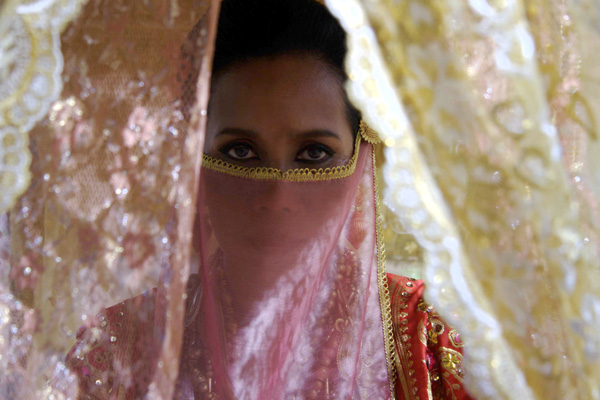|
Reviews of Recent Independent, Foreign, & Documentary Films in Theaters and DVD/Home Video

UNCLE BOONMEE WHO CAN RECALL HIS PAST LIVES This gem, which combines an ailing Thai farmer’s final days with fantastic recollections of his previous lives, easily takes the award for best title of the year, and best poster (by New Yorker favorite Chris Ware) to boot. It already won the Palme d’Or at Cannes last year, and has some of the eeriest, most intense imagery I’ve seen in a long time. Despite all of this, it’s a true art film and may be inaccessible for many audiences. A small investment in this one, though, will not go unrewarded. At the top of his game as a director, Apichatpong Weerasethakul assumes a prior knowledge from his audience. For one, his stories and visual references are steeped in Thai politics, ranging from the recent political unrest in Bangkok to more obscure topics from his childhood in the rural northeast. Even Thais, especially young filmgoing urbanites, could miss the sometimes-opaque clues about the decades of strife dating back to the 1970s and ’80s. This time around, Uncle Boonmee (Thanapat Saisaymar) mentions his guilt at having killed anti-government communists when he served in the military as a young man, and a later sequence blends fact and fiction by featuring young boys in military garb and assault rifles frolicking with a “monkey ghost,” an incredible glowing-eyed invention that Weerasethakul calls a throwback to the sci-fi fantasy films of his youth. Secondly, Weerasethakul requires a film-literate audience. As a quick example, look to his editing strategy in the final scene, in which a mother and daughter chat on a bed in a hotel room. Like something from a Hong Sang-soo film, he holds on a single angle for a long time until suddenly we see the reverse shot, with the door to the room in frame, and we are somehow surprised to see it. “This hotel room has a door?” It’s fun to be caught asking yourself such a question, and Weerasethakul’s subtle directorial decisions keep us engaged so. To view Uncle Boonmee without a keen sense of film technique is to miss out on something masterful. But this film, or any of his previous ones, is not necessarily inaccessible to audiences. Like the films of Tsai Ming-liang, or maybe those of Claire Denis, Weerasethakul’s feelings—along with those he expects to induce in an audience—are in a kind of Buddhist harmony with his techniques. The ideas and the language are seamless. Decisions on where to place the camera and the actors, or whether to use incandescent or fluorescent bulbs often come from somewhere in this director’s spirit. (However unpleasant their effect may be, Weerasethakul has stated in interviews that fluorescents remind him of the comforts of home.) This is instinctual storytelling and incredibly powerful, however mystifying. Thai culture—currently in a watershed moment between tradition and modernity—is quite unique, and with that behind him, Weerasethakul writes with the sharp insight of an anthropologist. The main concern in Boonmee is the mortality of its main character. We learn both of his spirituality as the ghosts of his wife and son appear to him, and of his physical health as we watch his daily ritual of kidney dialysis. We are mostly on Boonmee’s farm, stationed at the edge of the wilderness, the last outpost of civilization for miles around. The opening sequence literally recalls a past life when, presumably, Boonmee was a captive water buffalo in a tribe of hunter-gatherers. He escapes for a moment to the wilds of the jungle, only to balk and allow one herdsman to recapture him and return him to the safety (read: constraints) of society. Nearby, a monkey ghost, which may just be the perfect example of where nature meets humanity, passes silent judgment. As I’ve
said, to demystify Weerasethakul’s films isn’t as daunting as it
sounds. He’s
working with very recognizable themes, adding level upon level of
complexity. It’s the reason these films are so highly regarded. Another
recalled-life sequence where a woman mates with a fish has perfect
relevance to Boonmee’s dealings with his family and his work. The
director has built an entire mythology into Boonmee. Thus, by the
final chapter, when a young monk trainee reaches a personal catharsis
during a ceremony in a gaudy, fluorescent-lit urban temple, we are able
to understand the huge emotional transformation he’s undergoing, despite
his reservation of emotion. I would have made the point that the entire
film is like a prologue for this pivotal climax, but it all feels so
connected. Like Boonmee, who lives his past lives even in the present
one, we can think about all of Boonmee’s scenes in the same way.
Michael Lee
|

